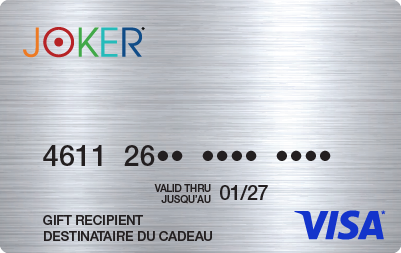The Joker Card: The Wild and Unpredictable Game-Changer
The Joker card is one of the most enigmatic and fascinating pieces of any deck of cards. Though it often goes unused in many traditional games, its presence is undeniable. What makes the jokercard balance so special is not only its unique role in card games but also its symbolism, cultural relevance, and evolution over time.
A Brief History of the Joker Card
The Joker card was not originally part of the standard deck. Its introduction is often attributed to the 19th century, specifically to American Euchre players who required an extra trump card. Known as the “best bower,” the card eventually evolved into the Joker as we know it today. Over time, it was adopted into other card games, bringing with it its wildcard status.
The artwork on the Joker has varied greatly from deck to deck, reflecting different artistic styles and cultural influences. Typically depicted as a court jester or a clown, the Joker card conveys a sense of chaos, mischief, and trickery. The jester’s cap and brightly colored clothes reinforce the idea that the Joker is a figure who doesn’t follow conventional rules.
The Role of the Joker in Card Games
In most card games, the Joker is considered a wildcard—an unpredictable element that can take on the value of any card. Its inclusion adds an element of surprise and strategy, where players must decide how best to use this versatile card. Some of the games where the Joker plays a central role include:
- Poker: In certain poker variations, the Joker is used as a wild card, giving players the ability to substitute it for any other card they need. This creates a more dynamic and unpredictable game.
- Rummy: The Joker is often used as a wild card in Rummy as well, allowing players to complete sequences and sets more easily.
- Euchre: This is where the Joker originally came into prominence, acting as the highest trump card and capable of turning the tide of the game in favor of whoever holds it.
Not all games include the Joker, but in those that do, it stands as a game-changer, one that requires careful consideration and strategy to use effectively.
Symbolism of the Joker
Beyond the world of card games, the Joker has come to symbolize much more. Its unpredictability and tendency to break the rules have made it a powerful symbol in art, literature, and popular culture. The Joker can represent chaos, chance, and the unpredictability of life itself. Some also see it as a metaphor for rebellion against societal norms and expectations.
In tarot decks, for example, the Fool card holds a similar position to the Joker. The Fool represents new beginnings, naivety, spontaneity, and a willingness to take risks—an apt metaphor for the role the Joker plays in card games and beyond. The Fool, like the Joker, is a liminal figure, standing between worlds, outside of rules, yet often central to the narrative.
The Joker in Pop Culture
Perhaps no figure has contributed to the cultural mystique of the Joker more than its counterpart in popular media—the Joker in comic books. The DC Comics character, known as Batman’s arch-nemesis, embodies many of the characteristics that the card Joker symbolizes: chaos, madness, and a disregard for rules. This villain has become iconic, with numerous portrayals in films, television shows, and graphic novels, all drawing from the original concept of the Joker as an unpredictable, wild entity.
The comic book Joker, however, takes the concept of chaos and unpredictability to a darker place, becoming a symbol of the thin line between order and madness. Whether viewed as a trickster, a villain, or a misunderstood antihero, the Joker in pop culture has cemented the card’s association with complex, multifaceted figures who refuse to play by the rules.
The Dual Nature of the Joker
Interestingly, the Joker card often comes in pairs—one colorful and one black and white—adding to its duality. This reflects the two sides of its nature: fun and chaos on one hand, but also darkness and uncertainty on the other. Whether seen as a playful trickster or an agent of chaos, the Joker card represents the unknown, the wild card that can change the course of any game or situation.
Conclusion
The Joker card remains one of the most intriguing aspects of a deck of cards. While it is often sidelined in favor of more conventional cards, its wildcard status in games gives it unique power. In broader culture, the Joker stands as a symbol of unpredictability, chaos, and the rule-breaking spirit that challenges conventions. Whether you’re playing a casual game of Rummy or watching a thrilling Joker portrayal in a film, the card continues to captivate and surprise.
As much as it disrupts order, the Joker card brings balance through its role as a game-changer, reminding us that life, like a deck of cards, is full of surprises.

